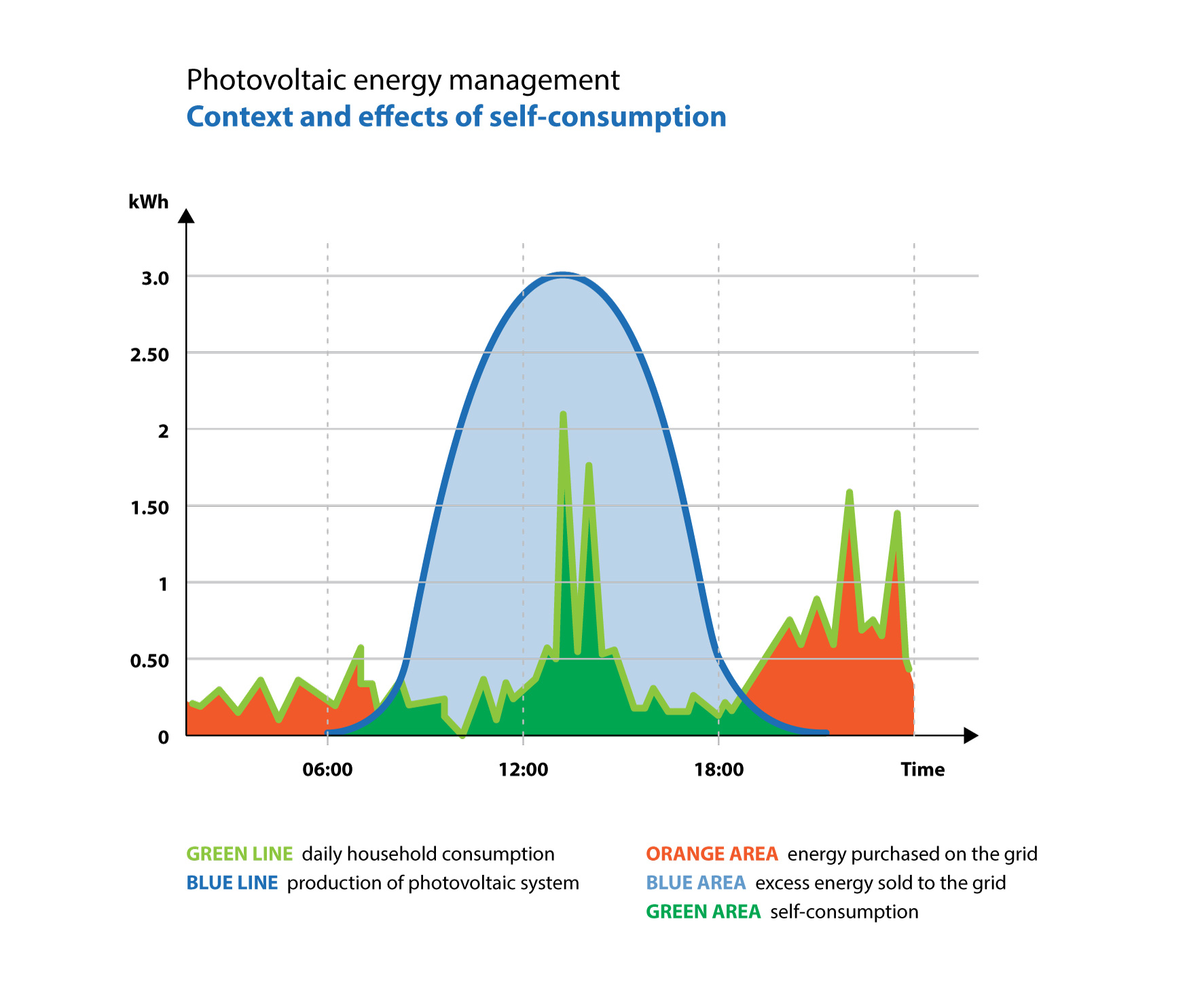
Solar energy management
The importance of self-consumption
In the challenges faced in the ecological transition, photovoltaics play a fundamental role in the production of renewable energy. In fact, in recent years – despite the growing number of photovoltaic systems installed – there has been an exhaustion of the incentives for the production of renewable energy.
As such, the question is obvious:
From an economic point of view, is it worth installing a solar system?
The answer is “Yes” – so long as the percentage of self-consumption is higher than 80%.
What is self-consumption?
The energy produced on-site is immediately consumed.
When we talk about self-consumption in residential solar systems, we are referring to the ability to immediately and locally consume the energy produced, without transferring it to the grid.
Indeed, it is estimated that the ROI period, with a self-consumption above 80%, is approximately 10 years.
The problem with self-consumption
According to that calculated by the Energy Services Manager in 2018, the average self-consumption capacity in residential solar systems, compared to the overall production, is around 23%. This makes the investment in solar not really worth it.
This is because most users are not at home during the hours of maximum insolation (the point when the energy production peak occurs, in the blue area of the graph) or do not adequately arrange for their appliances to be used during the day.

MIA ENERGY ![]()
optimises the self-consumption of solar energy
MIA ENERGY is an automatic system, designed to optimise the self-consumption of the energy produced by residential solar systems (up to 6kW in single-phase or on one phase of a three-phase systems up to 20kW) and shift consumption to peak energy production.
Would you like a consultation?
Allow us to help you


